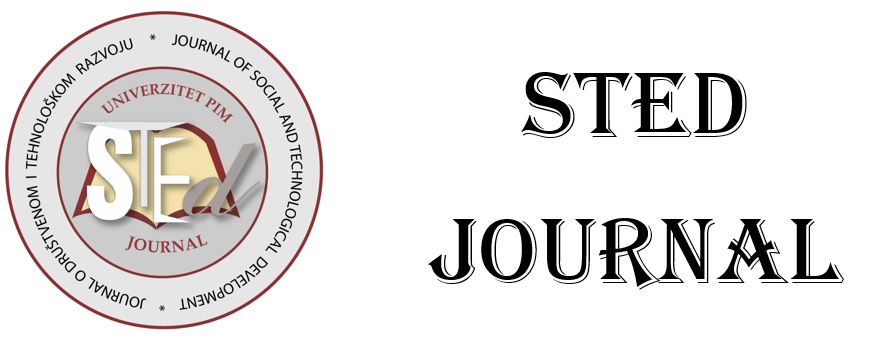
More articles from Volume 3, Issue 1, 2021
PORODIČNO AFEKTIVNO VEZIVANJE I AGRESIVNOST KOD NEPSIHOTIČNIH POČINILACA NASILNIH KRIVIČNIH DELA
AFEKTIVNA VEZANOST U DJETINJSTVU KAO PREDIKTOR STRESA, ANKSIOZNOSTI, DEPRESIVNOSTI I ADVERZIVNIH ISKUSTAVA KOD MLADIH
INTERPERSONAL RELATIONSHIP AS A FACTOR OF JOB SATISAFACTION
REGIONAL COOPERATION OF DEVELOPMENT IN LOCAL GOVERNMENT (CASE IN THE PROVINCE OF EAST JAVA, INDONESIA)
УПОТРЕБА ИНТЕРНЕТА У ПРЕДУЗЕЋИМА У РЕПУБЛИЦИ СРБИЈИ ЗА ВРЕМЕ ПАНДЕМИЈЕ COVID-19
Article views
CONFLICT OF A MEMORY CULTURE IN WESTERN BALKANS
Faculty of Political Science, University of Banja Luka , Banja Luka , Bosnia and Herzegovina
Received: 13.02.2021.
Accepted: 18.05.2021. >>
Published: 28.05.2021.
Volume 3, Issue 1 (2021)
pp. 57-68;
Abstract
Cultures of remembrance that are officially affirmed by national elites in the Western Balkan countries, that is in the former Yugoslavia, are a source of ongoing conflict. Various collective memories and mutually antagonized interpretations of the past, show that Croats, Serbs, Bosnians, Macedonians, Montenegrins and others who lived together for centuries and decades within a single state, after all interpret and remember their common history in completely different ways. Their social narratives about the past and dominant cultures of memory are predominantly selective, one-sided, intolerant, exclusive. After a long time, they lived together members of different ethnic, religious and national backgrounds and their historically unfinished and unsuccessful attempt to form a common Yugoslav culture and unique Yugoslav identity, a difficult civil war occurred, ethno-nationalism escalated, and people who were very close and very similar to one another, tried to create as much difference and distance between themselves through violence. All national communities that participated in the wars of the 1990s, emphasized defending national culture as one of their main tasks. The warring parties sought to destroy everything that reminded them that different people, their neighbors and friends of a different religion were living there. Today, three decades after these conflicts, they are still prisoners of their attitude to history. The culture nevertheless brings them together and inspires them to understand themselves more and to cooperate better.
Keywords
References
Citation
Copyright
All papers are licensed under a Creative Commons Attribution 4.0 International License.
Article metrics
The statements, opinions and data contained in the journal are solely those of the individual authors and contributors and not of the publisher and the editor(s). We stay neutral with regard to jurisdictional claims in published maps and institutional affiliations.











